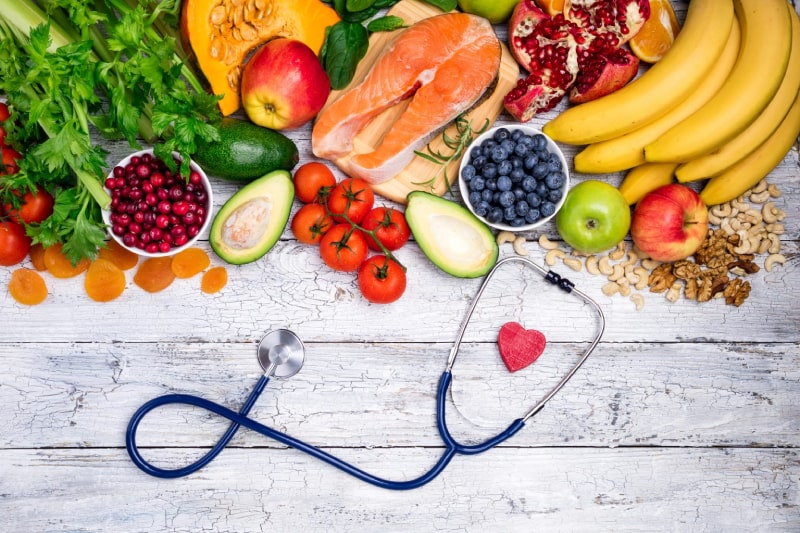Most patients are able to achieve an excellent quality of life, although there may be some restrictions. You doctor will be able to guide you to achieve your goals.
Exercise

Moderate exercise is good for most people and helps decrease overall risk of heart disease. It helps to regulate daily biological rhythms, improves sleep, mood and is important for weight control. However before starting any exercise program, you should consult with your doctor or another qualified healthcare professional to discuss what level of physical activity you plan to undertake, especially if you feel exercise intolerance.
Strenuous exercise however, should be avoided. Some studies have shown that atrial fibrillation risk is increased in endurance athletes, such as long-distance runners or cyclists. So patients are encouraged to pursue light to moderate exercise while avoiding excessive exercise.
If you develop an episode of atrial fibrillation while exercising, you should stop, sit down and follow the recommendations of your doctor or seek healthcare advice.
There are many apps and wearable devices (activity trackers, smart watches) available to monitor exercise including heart rate monitors, counting steps and tracking distance or pace.
Alcohol
Alcohol consumption is associated with an increased risk of atrial fibrillation in a dose dependent fashion. Whilst low to moderate alcohol use won’t usually cause problems in patients with atrial fibrillation, it is strongly recommended that excessive alcohol intake is avoided. If you experience that alcohol intake, even in low doses, triggers atrial fibrillation episodes it should generally be avoided.
Large amounts of alcohol can cause atrial fibrillation and may affect stroke prevention with blood thinning treatment, particularly for patients who take vitamin K antagonists (such as warfarin, acenocoumarol etc). It can also increase the risk of bleeding among patients who take blood-thinning medication. You should be honest with your doctor about how much alcohol you drink daily.
Recommendations on alcohol intake vary by country but the World Health Organization recommends that people should not consume more than 2 standard units of alcohol a day.
Click here to find out how many units there are in a drink.
You should also try to have at least 2-3 alcohol-free days per week.
Read more about sensible drinking guidelines (PDF)
Click here to read more about alcohol
Caffeine
Drinking too much caffeine could raise your blood pressure and increase your heart rate (which might trigger atrial fibrillation). Therefore, it may be advisable to limit your caffeine intake to a moderate level, for example 2-3 cups of coffee per day.
Click here to read more about caffeine
Smoking
In the case of atrial fibrillation, additional damage occurs because smoking makes the heart beat faster, and lowers the oxygen level in the blood. Your doctor will strongly recommend not smoking for your overall health. Please seek advice from your general practitioner.
Click here to read more about smoking
Weight loss
Obesity is closely linked to the to development of atrial fibrillation and increases the likelihood of atrial fibrillation recurrence after interventions such as ablation. Weight loss and lack of significant weight fluctuations improve atrial fibrillation control as well as outcomes after ablation. Scientific data strongly support the recommendation of weight loss for both prevention and management of atrial fibrillation. The primary target in obese patients is to lose 10% of body weight in the short-term.
Click here to read more about obesity
Stress
Clinical experience links stress to atrial fibrillation episodes, but data from clinical trials is limited. It is plausible that steps to reduce daily stress (eg. Yoga, meditation, relaxation techniques moderate exercise) may help with atrial fibrillation control and thus it is advisable for your general overall health to avoid stress as much as possible.
Click here to read more about stress
Diet changes

A healthy lifestyle and a healthy and balanced diet are important for everyone but is especially important for people with heart problems, like atrial fibrillation. We recommend you eat a healthy and balanced diet and if you are overweight to lose weight.
If you have high blood pressure it is advisable to eat foods low in salt (you can check this on food labels) and do not add salt while cooking or at the table. You can ask your doctor about possible replacement of usual salt with potassium salt (another type of salt that does not cause raise in blood pressure) or natural herbs.
Your diet is particularly important if you are taking particular (vitamin K antagonist) blood-thinning medicines. This is because certain foods, particularly green leafy vegetables (lettuce, chard, spinach), contain lots of vitamin K which make these tablet less effective in the body. Read more about diet for patients who are taking warfarin/vitamin K antagonist.
If you are taking dietary supplements or herbal medicines such as St. John’s wort, ask your doctor about possible interactions with your medication, especially novel anticoagulation (NOACs).
Routine intake of fish oil is not recommended to reduce atrial fibrillation episodes.
Sex life
People who have experienced heart problems often worry about having sex, they may reduce or stop having sex because they are scared it may bring on further heart problems. They believe that having sex could be risky and they think “I have to avoid it” or “There is a risk I could get too excited and it could kill me.” Such thoughts lead to unnecessary stress and anxiety about having sex.
The good news is that for most people with heart problems, having sex is safe and recommended by doctors. Think of it this way, for an average man or woman, having sex puts the same amount of work on the heart as a steady 20-minute walk and having an orgasm is the same as walking up a flight of stairs. Exercise is good for the heart and sexual activity is just another form of exercise. So, regular sexual activity can actually be good for your heart. Get advice from your doctor, as for your exercise activity, especially if you feel exercise intolerance.
- Sex is good for the heart.
- Sex relieves stress.
- Sex boosts the immune system.
Driving

Most patients with atrial fibrillation are able to drive. However if you experience any episodes of dizziness or fainting you should not drive and tell your doctor, as these symptoms may be related to atrial fibrillation.
Traveling

In general there is no reason why you cannot travel (including flying) if you have atrial fibrillation but it is best to check with your doctor first. Comfortable travel is recommended and ideally avoid extreme temperatures (heat and cold) and high altitudes.
Before you make any holiday plans it is advisable that:
- Your atrial fibrillation is well controlled and stable.
- You take all your medication with you and ensure you do not run out of tablets while away.
- You take a summary of your medical history.
- You discuss with your doctor an action plan in case you have an episode of atrial fibrillation while away.

 Français
Français Deutsch
Deutsch Español
Español Italiano
Italiano Nederlands
Nederlands Polski
Polski Русский
Русский Svenska
Svenska Português
Português Hrvatski
Hrvatski Ελληνικα
Ελληνικα 简体中文
简体中文 العربية
العربية
